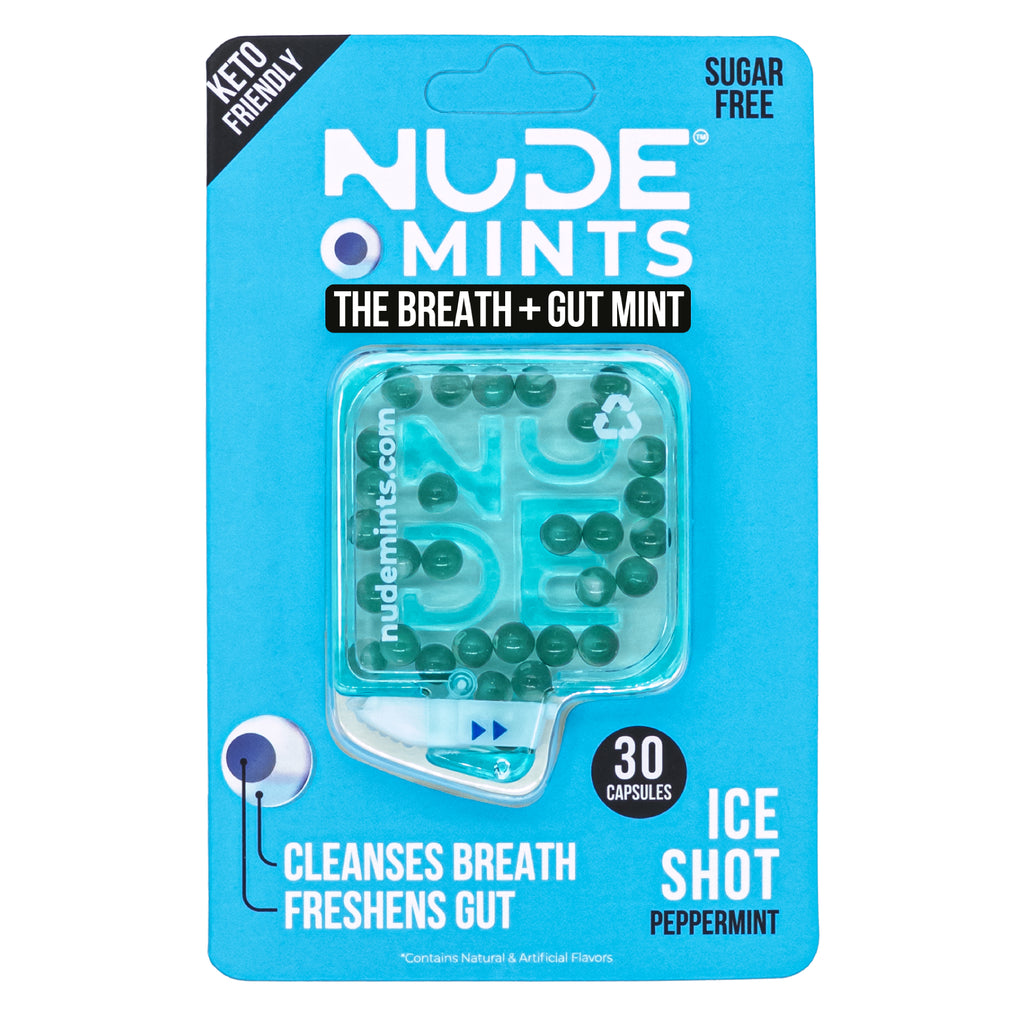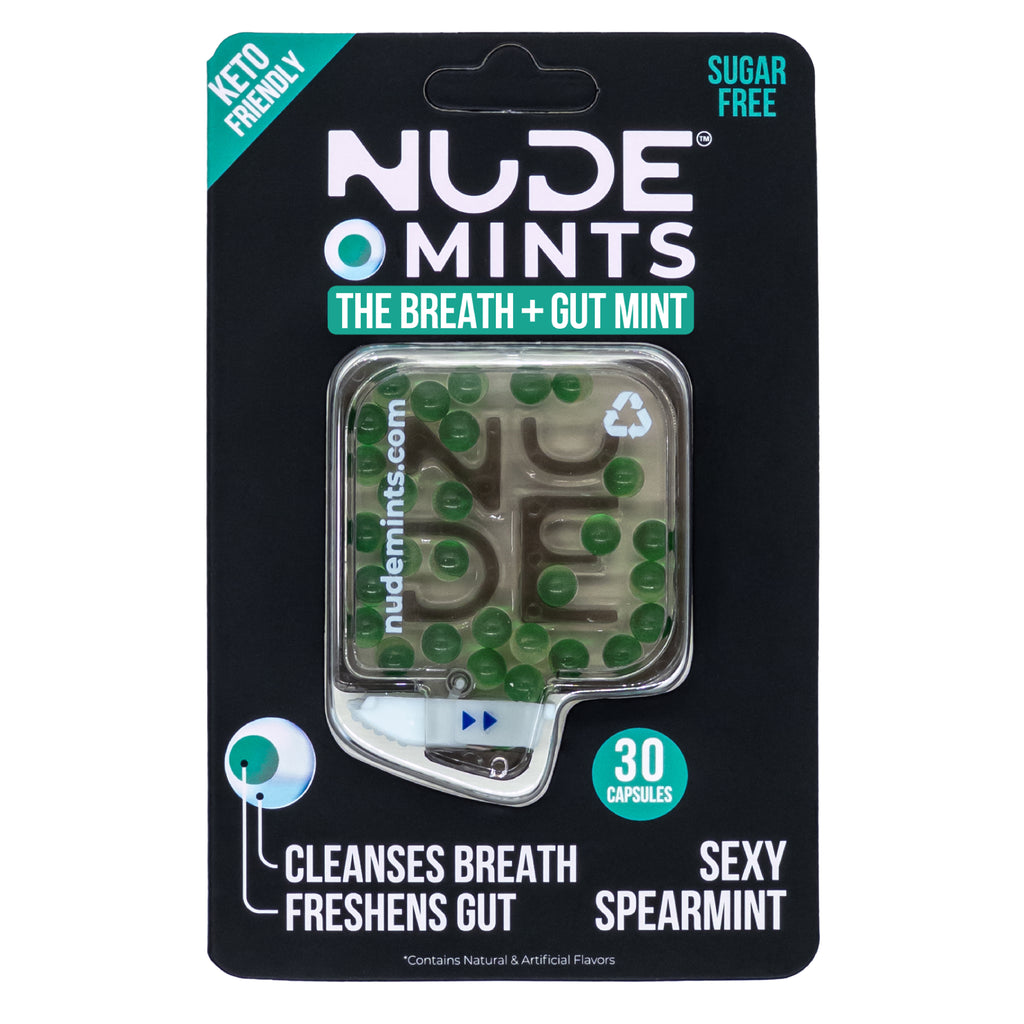Bad Breath from Tonsillectomy Recovery and Other Effects When Scabs Fall Off
-
When do tonsillectomy scabs grow?
Most tonsillectomies in youngsters are finished to resolve respiration issues associated with sleep apnea. It’s usually mixed with the elimination of adenoids as effectively. About 20% of tonsillectomies in youngsters are finished due to repeated infections. In adults, tonsillectomy additionally has been proven to considerably enhance inhaling these with sleep apnea when tonsils are enlarged.
As with all surgical procedures, restoration time and the course can range enormously amongst people. Following your process, it is best to anticipate scabbing together with some ache and discomfort. Tonsillectomy scabs kind the place the previous tonsil tissues had been eliminated. They develop as quickly as the world stops bleeding. This course begins after surgical procedure and earlier than you’re dispatched dwelling from the hospital.
Throughout your restoration, your scabs will fall off over the course of 5 to 10 days. In addition, they are likely to trigger bad breath. Learn on to seek out out what to anticipate and what indicators could point out a complication. Based on ear, nostril, and throat (ENT) specialists, restoration time can vary anyplace from one to 2 weeks.
What to anticipate after surgical procedure
Tonsillectomies are carried out at hospitals as each outpatient and inpatient procedures. Outpatient signifies that you don’t have to remain in a single day until there are any problems. An in a single day hospital (inpatient) keep is usually required for kids or adults with extreme signs previous to surgical procedure or with different health issues.
After the surgical procedure, you’ll have a sore throat for a number of days afterward. Earache, neck, and jaw ache also can happen. The soreness can worsen earlier than it regularly decreases over 10 days. You’ll initially be drained and will have some leftover grogginess from the anesthesia. Tonsillectomy scabs kind shortly. The scabs develop into thick white patches behind your throat. You need to see one on either side on high of the small quantities of tonsil tissue leftover out of your surgical procedure.
Different unwanted side effects from tonsil elimination including:
- Bad breath for up to a couple weeks
- Minor bleeding
- Gentle throat swelling
- White patches (scabs) that develop behind your throat
- Earache
- Headache
- Low-grade fever between 99 and 101°F (37 and 38°C)
What must you do in case your scabs bleed
Minor bleeding of tonsillectomy scabs is regular as they fall off. There ought to solely be a small quantity of blood. You’ll know you’re bleeding if you happen to see small crimson flecks in your saliva. The blood may even trigger a metallic style in your mouth.
A wrapped ice pack positioned over your neck, generally known as an ice collar, may also help with ache and minor bleeding. Your physician ought to present you directions with how a lot of blood is an excessive amount of. Call your surgeon straight away if the blood is vibrant crimson. You might have to go to the emergency room, particularly if you happen to vomit or be unable to maintain down fluids, or if bleeding is greater than minor.
Bleeding also can happen prematurely when your scabs fall off too quickly. You may detect this if you happen to begin bleeding out of your mouth earlier than 5 days after surgical procedure. Call your physician straight away if that is so. Comply with your surgeon’s directions relating to when emergency care could also be wanted.
When do your scabs fall off?
The scabs from tonsil elimination fall off someday between 5 to 10 days after surgical procedure. The scabs normally begin falling out in small items. The scabs can generally fall off without warning and are sometimes painful. A small quantity of bleeding out of your mouth is normally the primary signal that your scabs have begun to flair up.
Caring for yourself after a tonsillectomy
Usually, the primary few days following a tonsillectomy are probably the most uncomfortable. Nonetheless, individuals get well from surgical procedures in another way. Some people could proceed to have ache as much as 10 days after the process. Your throat will probably be sore, and you may additionally have a headache or earache. It’s attainable these unwanted side effects could be mixed with neck ache as effectively.
Over-the-counter acetaminophen (Tylenol) may also help scale backache. Ask your physician earlier than utilizing any medicines for your self or your little one. Discuss to your physician about taking ibuprofen (Advil), as this could improve bleeding in some instances. Your physician may prescribe different ache medicines. Putting wrapped ice packs in your neck or chewing on ice chips may also help alleviate a sore throat.
Fluids are particularly vital after surgical procedures. Water, sports activities drinks, or juice are good choices. A gentle meals eating regimen works greatest to restrict discomfort until the ache improves. Colder meals comparable to popsicles, ice cream, or sherbet may be comforting. You need to keep away from scorching, spicy, arduous, or crunchy meals, as they will irritate your sore throat or tear at your scabs. Chewing sugarless gum could assist in pace restoration after surgical procedure.
Vital relaxation is crucial for a minimum of the primary 48 hours after a tonsillectomy, and all regular actions ought to be restricted. Exercise can then improve slowly and regularly. Your little one can go to high school once they’re consuming and consuming usually, sleeping by the evening comfortably, and not requiring treatment for ache. Touring and performing vigorous actions, together with sports activities, ought to be averted for as much as two weeks or extra relying on restoration.
In Conclusion
Tonsillectomy scabs are a traditional course of getting your tonsils eliminated. As tonsil wounds heal, the scabs will fall off on their very own. Throughout the restoration course, you could be uncomfortable. The commonest aspect impact is a sore throat, which can last as long as 10 days after surgical procedure.
Whereas restoration from a tonsillectomy could be painful, once totally healed it is best to see an enhancement in your respiration or fewer recurring infections, relying on the explanation in your surgical procedure. Name your physician or pediatrician if you happen to discover extra bleeding, incapability to absorb or preserve down fluids, worsening sore throat, or excessive fever.
Grab a Pack of NUDE Mints
Do you have bad breath after a tonsillectomy? Just pop some NUDE mints in your mouth. Made with novel technology from Japan, it freshens your breath, cleans your gut, and boosts your confidence. Buy a pack of NUDE mints available in Ice Shot, Berry Kiss, Citrus Squeeze, Lemon Drop and Mad Melon.
Get the freshest news on your favorite mouth cleanser and gut freshener!
Read More
-
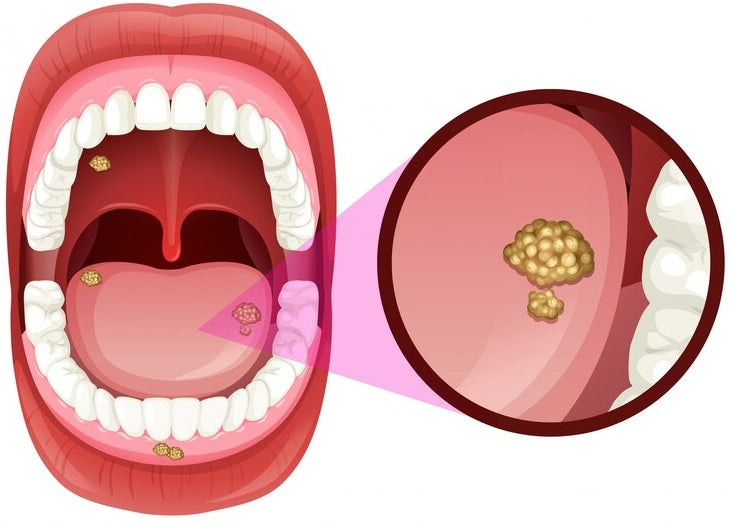
Halitosis: Understanding the Causes, Diagnosis, and Treatment for Fresh Breath
Halitosis, commonly known as bad breath, is a condition that affects a large number of people worldwide. It can be an embarrassing and isolating experience, but it is important to know that it is a common problem and that there are effective treatments available. In this article, we will discuss the causes, diagnosis, and treatment of halitosis. Causes of Halitosis Halitosis can have several causes, both internal and external. The most common causes include poor oral hygiene, dry mouth, certain foods and drinks, smoking, and certain medical conditions. Poor Oral Hygiene Poor oral hygiene is the most common cause of halitosis. When food particles and bacteria build up in the mouth, they can cause an unpleasant odor. Brushing and flossing...
-
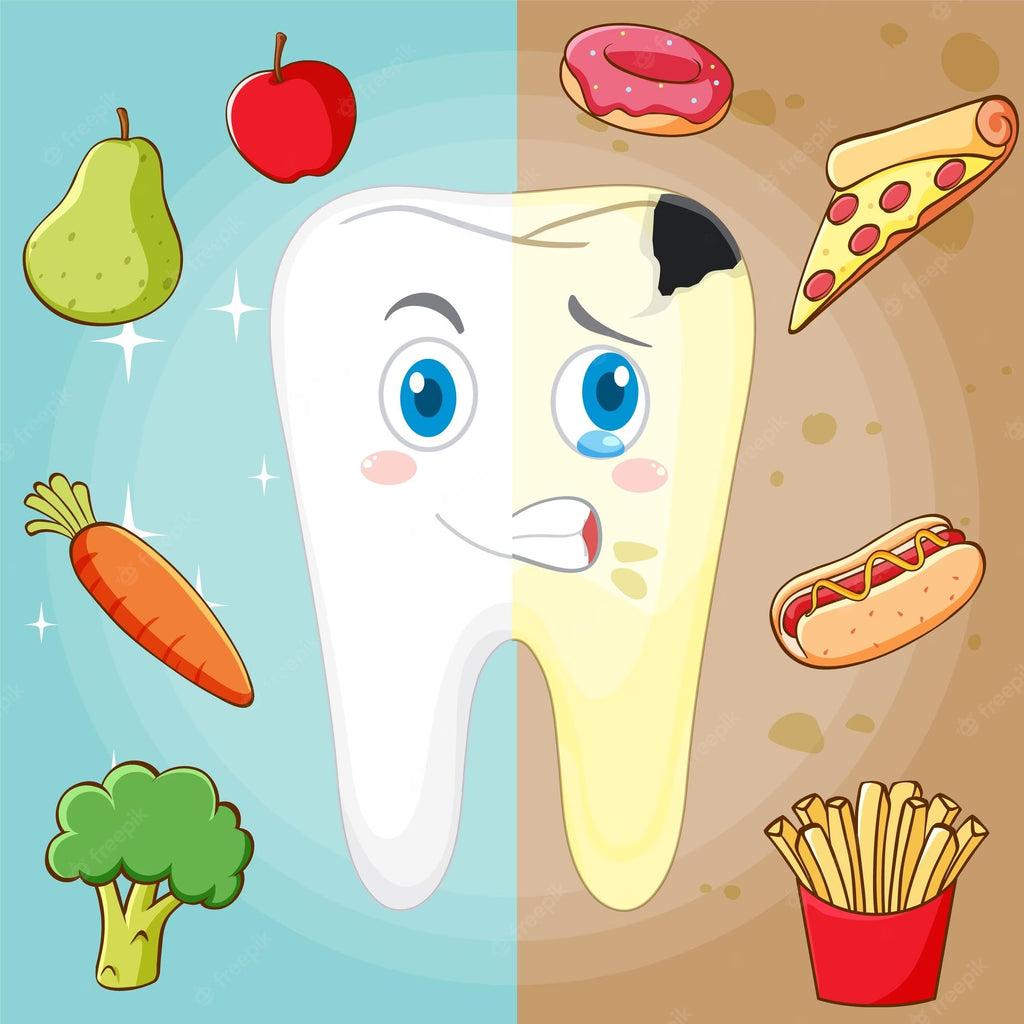
Crucial Connection Between Nutrition and Oral Health: Guide for Better Dental Care
As a dental health professional, we understand the importance of maintaining good oral hygiene to prevent cavities and gum disease. Brushing twice a day and flossing daily are essential habits, but did you know that nutrition also plays a crucial role in keeping your mouth healthy? In this article, we will explore the connection between nutrition and oral health and how you can make better food choices to support your dental health. How Nutrition Affects Oral Health Your diet can impact your oral health in many ways. A diet high in sugary and acidic foods can increase the risk of tooth decay and gum disease. When you eat sugary foods, the bacteria in your mouth feed on the sugar and...
-
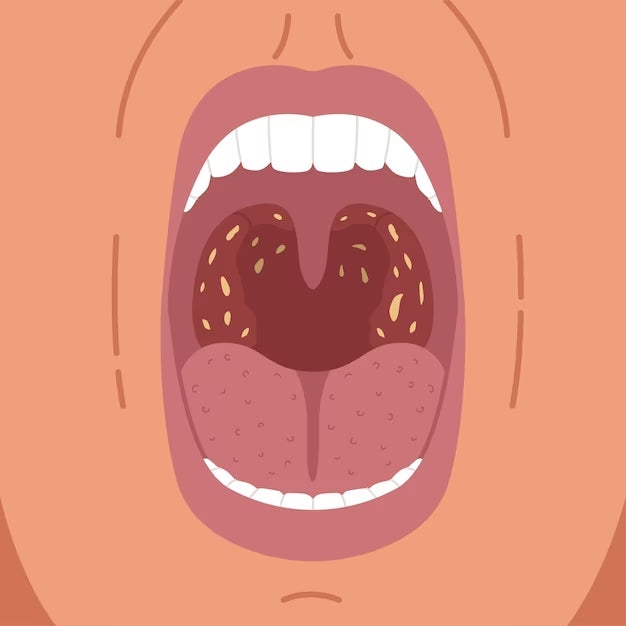
How to Treat Bad Breath Caused by Dry Mouth
Do you ever feel self-conscious about your breath? Do people avoid talking to you because of bad breath? Dry mouth, also known as xerostomia, can cause bad breath and make social interactions uncomfortable. In this article, we will discuss what causes dry mouth, how it leads to bad breath, and what you can do to treat it. Table of Contents What is dry mouth? Causes of dry mouth How dry mouth causes bad breath Signs and symptoms of dry mouth Diagnosis of dry mouth Treating dry mouth Home remedies for dry mouth Professional treatments for dry mouth Tips for maintaining oral hygiene Foods and drinks to avoid with dry mouth Conclusion FAQs What is dry mouth? Dry mouth occurs when...
-
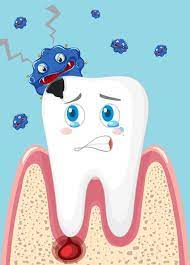
The Relationship Between Diabetes and Gum Disease: Understanding the Link
Diabetes and gum disease are two conditions that may seem unrelated, but research has shown that they are actually closely linked. In fact, individuals with diabetes are more likely to develop gum disease, and those with gum disease are more likely to have difficulty controlling their blood sugar levels. This article will explore the connection between diabetes and gum disease, and provide insights on how you can reduce your risk of developing both. The Relationship Between Diabetes and Gum Disease Diabetes is a condition that affects the body's ability to produce or respond to insulin, a hormone that regulates blood sugar levels. When blood sugar levels are consistently high, it can lead to a range of health complications, including nerve...

